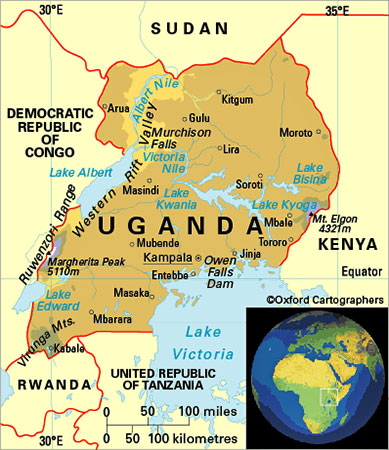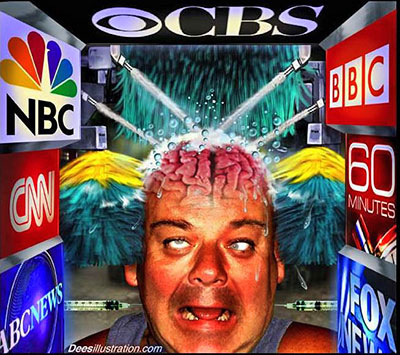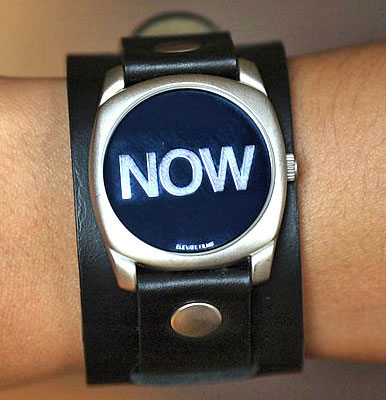|

by Lewis Herridge
1 September, 2013
from
Re-EvolvingEarth Website
Spanish version

Bwikasa
Rural Uganda Local
youngsters.
In July 2013 I returned from Uganda after leading a 2 week trip with
a group of teenagers.
They were a great bunch and we got a
chance to really integrate ourselves into the Ugandan culture. Our
highlight being a 4 day home-stay in a rural, remote Ugandan
Village.
At the end of the trip I was so
impressed with the group's comments that I just had to write them
down.
Here are some of their comments:
"Ugandans are a lot happier with the
little things they have; kids show a lot of respect; and the
community is a lot stronger than Britain."
"The Ugandans have very little but are so happy with what they
have- the opposite to the people in Britain"
"People in Britain take everything for granted. The Ugandan
people are so happy and welcoming even though they have so
little. They are truly great people and definitely deserve
better"
"More community spirit and a sustainable lifestyle = happier
people, but then they know no different. We should be more like
this in the UK"
"Intelligent, thoughtful and resourceful people with a strong
sense of community"
These above points are quite profound,
particularly because of their age, but they are not an unusual
reaction and are common place after every trip I have led.
The important points to note here are:
All points that they suggest contrast
the British culture and I would argue 'western' culture.

My group were certainly the opposite to
Ugandans.
They were used to a life of material
goods, most from very wealthy backgrounds and certainly privileged
in many ways. They have all been sold the corporate lie that
happiness comes from outside of them, through that new smart phone,
tablet, TV etc. and they predominately live in the virtual world.
The people of Uganda are different, they had their focus elsewhere.
Their lives often a struggle to maintain
food on the table and enough clean water. We worked with a charity
that told us that 1 in 5 children under the age of 5 die because of
consuming dirty water. Very tragic in this day and age and something
that we should not be discussing if our world actually cared!
As a result of this challenging but simplistic lifestyle they are
not subject to the same corporate brainwashing as us (admittedly
they have many other problems but this is for a different time).
Many rural villages often do not even have electricity.
They do not have TVs, readily available
magazines and newspapers, internet, billboards (only in towns) and
few have portable radios with basic mobile phones.
These items are the weapons used for
mass propaganda in western society, to
tell us our news and manipulate our reality,
so we all fall in line. Albeit a very clever one.
Because they are not subject to mass propaganda they see things for
the way they are and are not shrouded by a forced perception. Our
society on the other hand is almost the opposite.
In 2010 research suggests that the
average teenager spends 7 hours 38 minutes per day in front of a
digital screen.
That's,
-
TVs
-
computers
-
laptops
-
mp3s
-
phones
-
tablets
That is a lot of time and I would argue
that has increased since then as well.
I ask the question, what is this doing
to us?

Our subconscious mind is very powerful,
often referred to as the sleeping giant as it absorbs and stores
everything that we experience in our day to day life. Things we see
and hear are stored for later use by our conscious mind.
But what are we storing?
John Arden writes in his book, Americas Meltdown that,
"It is estimated that the average
child sees 20,000 thirty second commercial a years. By
adolescence they will have seen 200,000."
He goes on to talk about the violence in
the entertainment industry:
"By the age of 14, a child can have
witnessed 11,000 murders on television. In just three hours of
television, a child can see nine car wrecks, nine robberies,
eight murders and twenty-six insults.
Some movies such as Die Hard 2, have
as many as 264 murders."
This is not to mention the gaming
industry with popular Xbox games such as Assassins Creed and
Call of Duty (CoD).
Want to guess what these are about?
Also, the music industries mass manipulation through 'songs' that
often have lyrics promoting drinking, sex, clubs, riches and the
material life, working hard and playing hard, doing 9-5s, living for
the weekends and a population of thick, stupid, idiots.
These are often supported by music
videos that are boarder line, soft core porn and readily available
at home, in school canteens and clubs/ bars. Newspapers and
magazines are no better and they all contribute massively to
people's insecurities about how they should look and act.
Violence, sex, drugs, drinking, clubbing, living for the weekend,
being dumb are all promoted. We absorb this information into our
subconscious and it therefore affects our perceptions, which in turn
affects our conscious mind and actions.
People find it very difficult to live up
to this and as a result self confidence and self-esteem are damaged,
therefore affecting your general happiness.
Entertainment media is simply dead
time, your mind is consumed but the body is stationary. Think
about it, would you just sit and lounge around like you do when
watching TV if that TV was not there?

Rural Ugandans are not subject to this and I believe this is a
contributing factor to their happiness in the face of illness,
disease, death and generally a challenging lifestyle.
They are credit to the power of the
human spirit!
Whilst on this expedition, my group did not have their phones, MP3s
, tablets or watch TV in this two week period and so at the end I
asked them what it was like (for these entertainment driven
teenagers) to spend time without them; this was some of their
responses:
"It's been great to experience 2
weeks with no TV. It has made me realize the importance of other
things I could be doing opposed to doing nothing and watching TV
for hours on end at home."
"I haven't missed it at all, the only reason for watching TV at
home was if I was bored, but I've now learnt going/ being
outside is way better."
"It's been nice to get away and interact with people instead."
"It's been much better interacting with people rather than the
TV screen. Reality over virtual world."
"It's been fun figuring out new ways to stay entertained. Had a
lot of laughs along the way and bonded with the group as a
result."
"It has been great to get away from the temptation of sitting at
home on the sofa, I enjoyed living in a country where television
is such a small part of society and the focus is on community
and meeting people."
Not one of the team said that they
missed them and you can see from these comments that they don't
really appear to enjoy it anyway.
When asked, what they done in
replacement from TV and this entertainment media; this was their
response:
"I have been chatting to the locals
and my team members alike, learning the language, playing games
with the children and looking around to appreciate my
surroundings more."
"I have gained many social skills when being away from the TV,
unique skills that cannot be obtained from watching TV alone at
home."
"Actually had conversations with people, got to know them
properly."
"Talked, games (cards etc), sang songs, told jokes, read books
and magazines"
"Jokes, pranks, sport and SOCIALIZING."
"I have socialized with many people, played games and got to
know everyone very well."
Now, the important points to note here
are that they have not missed their electronic products, even though
they take up a lot of their lives at home.
And that they have spent more time
getting to know people, socializing, playing games, joking, laughing
and appreciating their surroundings in its replacement. They have
been living in the real world as opposed to the virtual world!
Remember this was two weeks away from it, now imagine a life time of
this, like the rural Ugandans experience every day.
What would this create?
By getting away from your TV, limiting the use of other electrical
goods such as phones and tablets then it allows you to focus on the
'here and now', you are more present, more alive and you begin to
notice things around you.

You stop being so tied up in your
thinking mind, otherwise known as the ego and you begin to start to
feel and see the subtle energies around you.
This is the start of the presence that
many spiritual teachers talk about.
Another thing I have found useful is to feed the subconscious mind
with positive energies. There are many great audio books or hypnosis
recordings that feed the mind when sleeping. I greatly attribute
this type of subconscious feeding to giving up a 10 year smoking
habit and overcoming some deeply ingrained attributes and memories
that were holding me back.
Start to watch what you feed your subconscious mind. You have a
choice to feed it what you want and what you need; it requires
action on your behalf and honesty with yourself but I can guarantee
you will feel better for it.
Try it for yourself and you will see...
"The marvel of television is one
means used to turn society into a uniformed mush."
Erick Von Daniken
History Is
Wrong
|






